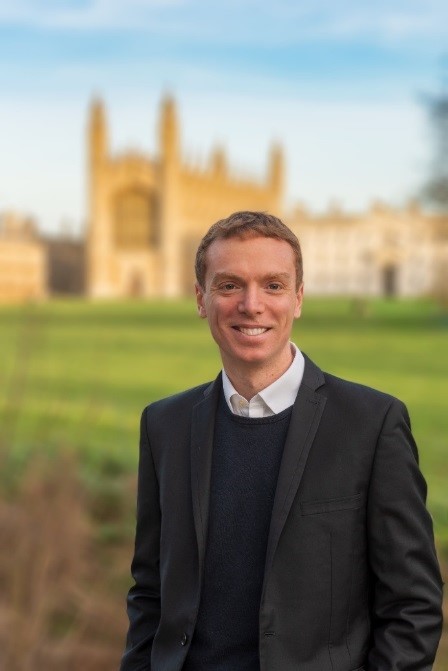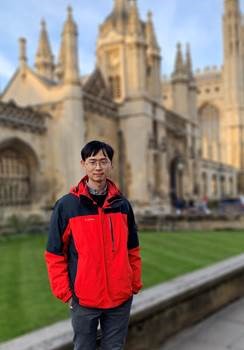CAMS Research Fellowships
Cambridge Alliance on Medicines Safety Research Fellowships
A key aim of CAMS is to expand and stimulate the science which underpins assessment of medicines safety and toxicology to advance the translational relevance of experimental safety studies. Accordingly a CAMS Fellowship scheme has been initiated to build capacity in this important area by attracting very best researchers to Cambridge and to develop a career in medicines safety science. AstraZeneca and GSK have agreed to fund two Junior and two Senior Fellowships.
 Dr Daniele Biasci is the first CAMS Junior Fellow to be appointed, starting his post-doctoral research project on toxicology of cancer immunotherapy on 1 January 2019. Academic mentorship is provided by Professor Anne Willis and Dr James Thaventhiran of the MRC Toxicology Unit and additionally there is access to industry knowledge and resources of AstraZeneca and GSK. The project will partner also with CRUK-Cambridge Institute, CRUK-Cambridge Cancer Centre Early Phase Clinical Trials Team.
Dr Daniele Biasci is the first CAMS Junior Fellow to be appointed, starting his post-doctoral research project on toxicology of cancer immunotherapy on 1 January 2019. Academic mentorship is provided by Professor Anne Willis and Dr James Thaventhiran of the MRC Toxicology Unit and additionally there is access to industry knowledge and resources of AstraZeneca and GSK. The project will partner also with CRUK-Cambridge Institute, CRUK-Cambridge Cancer Centre Early Phase Clinical Trials Team.
After completing a BSc and MSc at University of Pisa, Daniele moved to study at the University of Cambridge and was awarded a PhD titled Predicting Clinical Outcomes in Immune Diseases. Daniele is a past holder of a Schlumberger Fellowship for Interdisciplinary Research at Darwin College. More recently he was a Research Associate at the Cancer Research UK Cambridge Institute (CRUK CI) in the Computational Biology Group of Professor Simon Tavaré, where he combined his immunology background with bioinformatics and computational skills to add a new feature to the translational studies undertaken by Professor Duncan Jodrell’s laboratory in the CRUK CI and the Cambridge Cancer Trials Centre.
This CAMS Fellowship will link with clinical trials for inhibitors of immune checkpoints which have revolutionised cancer therapy, leading to durable treatment responses in a proportion of patients with previously incurable cancers. It will address immune-mediated adverse reactions in cancer immunotherapy where unpredictability of response is a significant obstacle in delivery.
 Dr Hongbin Yang was awarded the second junior CAMS fellowship in 2019. Hongbin started his post-doctoral research project focussed on computational toxicology in November under the academic mentorship of CAMS steering committee member Dr Andreas Bender. Similarly to Daniele, Hongbin will have access to the industry knowledge and resources of both AstraZeneca and GSK.
Dr Hongbin Yang was awarded the second junior CAMS fellowship in 2019. Hongbin started his post-doctoral research project focussed on computational toxicology in November under the academic mentorship of CAMS steering committee member Dr Andreas Bender. Similarly to Daniele, Hongbin will have access to the industry knowledge and resources of both AstraZeneca and GSK.
After completing a BSc at East China University of Science and Technology (ECUST) in Shanghai, Hongbin continued his studies here and was awarded a PhD entitled; In Silico Prediction of Chemical ADMET Properties via Statistics and Machine Learning Methods, during which Hongbin focused on structural alerts and QSAR techniques for toxicity prediction and toxicology research. After graduation, Hongbin had a short-term internship in WuXi AppTec (Shanghai), where he combined cheminformatics and deep learning techniques to design retro-synthesis plans.
This CAMS Fellowship is focussed on the in silico prediction of chemical cardiotoxicity and hepatotoxicity, two of the main causes of candidate drug failure during development. Using internal pre-clinical and bioactivity data from AstraZeneca and GSK, this work will utilise computational approaches to understand the translation of in vitro assays to in vivo outcomes.
